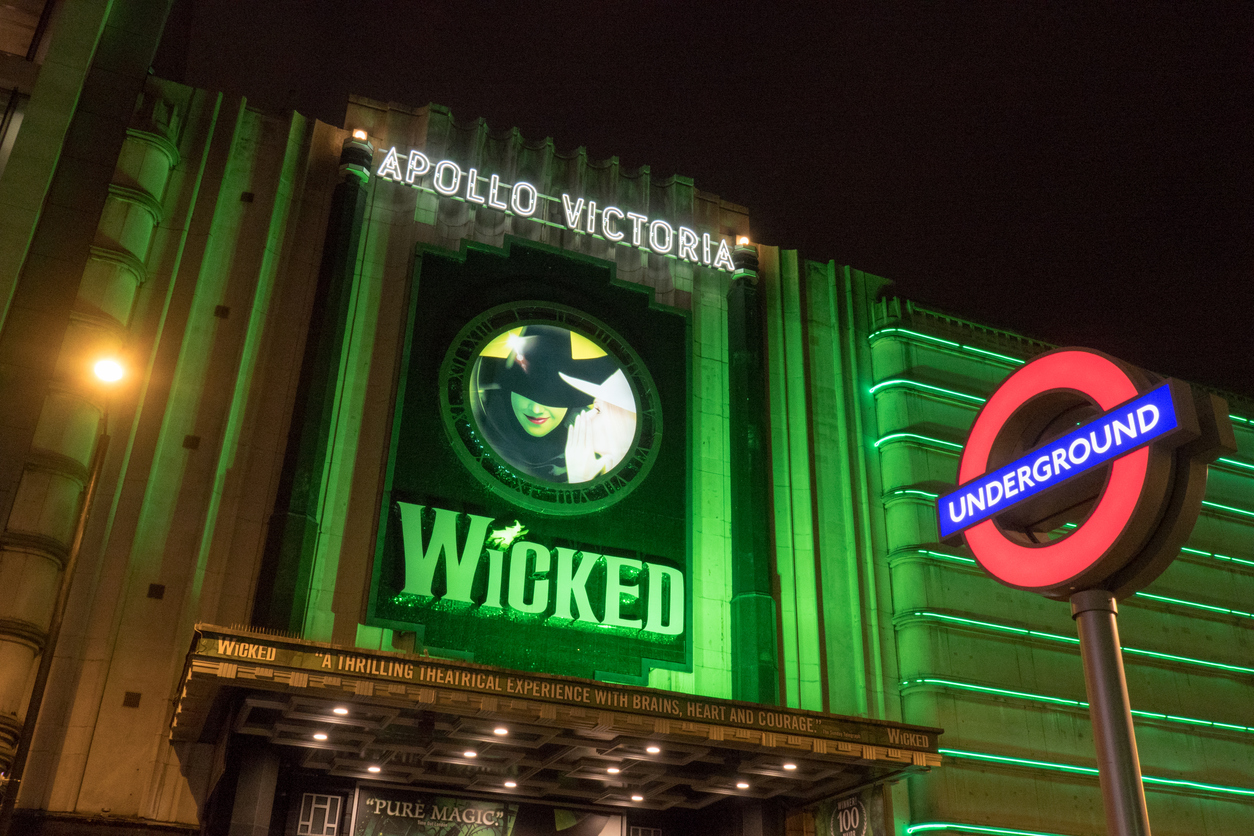The Scoop: Why Wicked’s merch blitz is good PR
Plus: FEMA must rebuild trust after anti-Trump orders confirmed; the role ChatGPT played in the election.

If you’ve stepped into a Target or a Starbucks lately, the wave of bubblegum pink and emerald green is impossible to miss.
Taking a page out of the “Barbie” movie’s successful playbook, the upcoming adaptation of the Broadway smash “Wicked” is filling stores – and capturing headlines – with quirky merchandising that plays up the main character’s iconic color palettes: the bright pink of Galinda, who will become the Good Witch of “Wizard of Oz” fame, and the vivid emerald of Elphaba, the Wicked Witch of the West.
CNBC reports that collaborations include makeup collabs with r.e.m. beauty, Lego sets, color-changing Betty Crocker cake mixes and even two custom wrapped Lexus luxury cars. The color blocking even extends to the press tour for the film, with stars Ariana Grande and Cynthia Erivo swathing themselves in vivid shades that instantly evoke the film. Again, this seems to be an extension of the strategy pioneered by Margot Robbie during the press junket for “Barbie,” when she wore a cavalcade of looks inspired by the doll’s wardrobe – many of them also in a trademark shade of pink.
Why it matters: Licensing and merch are, of course, great ways to earn some extra cash for a major film. But the press being generated by these collabs – and the social media buzz – is just as powerful.
The Daily Dot posted a story about a hack to get that Betty Crocker mix to change colors just right. Lifestyle sites like Town & Country and Women’s World posted roundups of the best “Wicked” merch. Even Vogue is diving into the clothes from the premiere. And of course, social media is paying attention as well, amplifying and reamplifying the messages.
The entire campaign is showing the power of marketing tactics building atop one another. Merchandising becomes part of the messaging. The messaging gets picked up by fans who amplify it. The media picks up on the fan excitement. The cycle repeats.
But it hasn’t all been bubbly and easy. Erivo lashed out at fans for an edit that made a movie poster look more like the playbill of the Broadway musical, dubbing it “offensive,” which can tamp down on the free viral marketing fans are likely to do. While Erivo didn’t quite apologize, she did later acknowledge she “probably should have called (her) friends, but it’s fine.”
And over the weekend, the public discovered that the wrong URL was featured on the packaging of Mattel “Wicked” dolls. Whatever you do, do not search “Wicked.com” on a work computer – it is an adult site, not the site for the film.
Still, even that unfortunate misprint is more likely to generate additional press than to scar children in the long-run. It’s a funny, relatively harmless misprint.
We’ll see if all this PR is enough to make the movie popular.
Editor’s Top Reads:
- During the aftermath of Hurricane Helene, FEMA had to fight back hard against misinformation on a variety of fronts. One of the rumors, which the agency strongly denied, was that assistance was being withheld from supporters of Donald Trump. But it appears that in at least one case, that was true. A FEMA worker was fired for instructing response teams (reportedly but not confirmed to have been stationed in Florida) not to render aid to homes with Trump signs in the yard. The worker has been fired and FEMA Administrator Deanne Criswell called the actions “reprehensible,” but the damage has been done. The agency was already widely mistrusted and now critics have concrete proof of discrimination. FEMA must continue a full-on crisis communications blitz here, explaining in detail, every step of the way, how the lapse occurred and how they will ensure everyone is treated equally. Their challenge of combatting misinformation during uncertain times just got much, much harder.
- OpenAI has provided some insight into how its groundbreaking ChatGPT was used during the first truly AI election. The company revealed in a blog post that in the days leading up to the election, 1 million answers directed users to CanIVote.org, a nonpartisan website that helps people figure out how, when and where to vote. An additional 2 million answers pushed queriers away from ChatGPT and to reputable news sites like the AP and Reuters. ChatGPT refused 250,000 times to create images of the presidential or vice presidential candidates in a bid to stop deepfakes – a move the company itself says was largely successful, with no “evidence of U.S. election-related influence operations attracting viral engagement or building sustained audiences through the use of our models.” Naturally, we can’t see the full impact of AI on the election, but on the surface, fears of a deepfake-driven disaster did not come to pass in 2024.
- British chef Jamie Oliver has pulled copies of his fantasy children’s book, “Billy and the Epic Escape,” after accusations that the book perpetuates stereotypes and contains misleading information about Aboriginal Australians. Critics of the book say it contains language errors, boils down complex beliefs to “magic” and that a kidnapping plot is insensitive, given the pain of Aboriginal children being removed from their homes. Oliver apologized, saying he was “devastated” by the pain he’d caused. While Oliver had apparently requested a consultation with Aboriginal leaders, his publisher, Penguin Random House UK, said it had not occurred due to an “oversight.” This seems like a large oversight. Always check in with your audiences, especially when they’re different from your own identity. Get feedback, make changes and avoid embarrassment down the road.
Allison Carter is editor-in-chief of PR Daily. Follow her on Twitter or LinkedIn.







